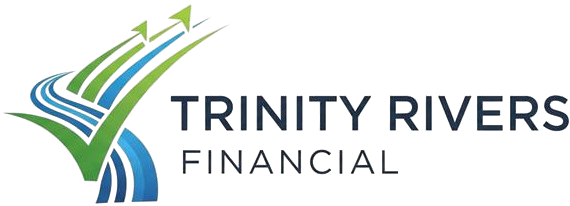Plan your expenses and deductions strategically each year
Egestas tincidunt ipsum in leo suspendisse turpis ultrices blandit augue eu amet vitae morbi egestas sed sem cras accumsan ipsum suscipit duis molestie elit libero malesuada lorem ut netus sagittis lacus pellentesque viverra velit cursus sapien sed iaculis cras at egestas duis maecenas nibh suscipit duis litum molestie elit libero malesuada lorem curabitur diam eros.
- Morbi fringilla molestie magna sed dictum. Praesent pharetra turpis augue.
- Cras mi purus, viverra vitae felis sit amet, tincidunt fringilla lorem.
- non mattis urna ex nec sem. Donec varius diam et suscipit venenati proin tincidunt
- Quisque euismod posuere lacus sit amet volutpat. Praesent vel imperdiet
Maintain accurate and organized financial records for easy reporting
Tincidunt pharetra at nec morbi senectus ut in lorem senectus nunc felis ipsum vulputate enim gravida ipsum amet lacus habitasse eget tristique nam molestie et in risus sed fermentum neque elit eu diam donec vitae ultricies nec urna cras congue et arcu nunc aliquam at.

Talk to a tax professional for expert guidance
At mattis sit fusce mattis amet sagittis egestas ipsum nunc scelerisque id pulvinar sit viverra euismod. Metus ac elementum libero arcu pellentesque magna lacus duis viverra pharetra phasellus eget orci vitae ullamcorper viverra sed accumsan elit adipiscing dignissim nullam facilisis aenean tincidunt elit. Non rhoncus ut felis vitae massa mi ornare et elit. In dapibus.
- Morbi fringilla molestie magna sed dictum. Praesent pharetra turpis augue.
- Cras mi purus, viverra vitae felis sit amet, tincidunt fringilla lorem.
- non mattis urna ex nec sem. Donec varius diam et suscipit venenati proin tincidunt
- Quisque euismod posuere lacus sit amet volutpat. Praesent vel imperdiet
Personalized Marketing: AI helps in analyzing customer data to create personalized marketing campaigns
At mattis sit fusce mattis amet sagittis egestas ipsum nunc. Scelerisque id pulvinar sit viverra euismod. Metus ac elementum libero arcu pellentesque magna lacus duis viverra. Pharetra phasellus eget orci vitae ullamcorper viverra sed accumsan. Elit adipiscing dignissim nullam facilisis aenean tincidunt elit. Non rhoncus ut felis vitae massa. Elementum elit ipsum tellus hac mi ornare et elit. In dapibus.
“Amet pretium consectetur dui aliquam. Nisi quam facilisi consequat felis sit elit dapibus ipsum nullam est libero pulvinar purus et risus facilisis”
Use accounting and tax software to make management easier
Placerat dui faucibus non accumsan interdum auctor semper consequat vitae egestas malesuada quam aliquam est ultrices enim tristique facilisis est pellentesque lectus ac arcu bibendum urna nisl pharetra bibendum felis senectus dolor commodo quam elementum sapien suscipit qat non elit sagittis aliquam a cursus praesent diam lectus tellus mi lobortis in amet ac imperdiet feugiat tristique nulla eros mauris id aenean a sagittis et pellentesque integer ultricies sit non habitant in cras posuere dolor fames.
Comprehensive Guide to Real Estate Accounting Software
Choosing the right accounting software is one of the most important decisions for real estate businesses, whether you manage a small portfolio of a few properties or oversee a large enterprise. Real estate accounting is uniquely complex, requiring more than basic bookkeeping. Accurate financial management involves tracking tenants and leases, allocating maintenance expenses, reporting to investors, and maintaining compliance with evolving regulations.
At Trinity Rivers Financial (TRF), we help property managers, syndicators, and developers navigate every stage of selecting, implementing, and optimizing real estate accounting software. Below, we break down the most widely used platforms—Yardi, AppFolio, and QuickBooks—to help you make an informed decision tailored to your portfolio.
Understanding the Market Leaders
Yardi – Enterprise-Level Excellence
Yardi dominates the enterprise property management market, holding a significant share alongside competitors like MRI and Entrata. Its flagship platform, Voyager, manages over 7 billion square feet of commercial space globally, making it ideal for large, multi-asset portfolios.
Strengths of Yardi:
- Integrated suite of modules covering accounting, property management, and reporting
- Advanced compliance and regulatory management tools
- Robust analytics for investor reporting and forecasting
- Extensive third-party integrations and customizable workflows
- Specialized modules for commercial, multifamily, and affordable housing operations
Yardi is the go-to choice for organizations that require depth, scalability, and precision across multiple property types.
AppFolio – Mid-Market Innovation
AppFolio is designed for small to mid-sized property portfolios. Its cloud-native architecture supports modern operational needs, providing intuitive workflows for managers on the go.
Key Advantages:
- Simple, intuitive interface requiring minimal training
- Mobile-first design for property management anywhere
- Automated workflows to reduce administrative burden
- Tenant and owner portals for seamless communication and reporting
- Predictable, per-unit subscription pricing
AppFolio offers a balance of efficiency and ease of use, making it perfect for owner-operators managing 50–1,000 units.
QuickBooks – Familiar General Accounting
QuickBooks is a widely used small business accounting tool. While it lacks specialized real estate features, it provides basic accounting functionality suitable for very small portfolios.
Benefits of QuickBooks:
- Familiar interface and simple setup
- Low entry cost for small-scale operations
- Large network of accountants experienced with the platform
- Core accounting functions, including general ledger, accounts payable/receivable, and reporting
- Extensive third-party marketplace for add-ons
For individual investors or small syndication operations, QuickBooks can serve as a starting point, especially when paired with property management add-ons.
Functional and Compliance Features
Real estate accounting requires specialized functions and adherence to regulatory standards.
Yardi
- Advanced lease administration and lease abstraction
- CAM reconciliation for commercial properties
- Comprehensive investor and owner reporting
- Integrated facilities and maintenance management
- Budgeting, forecasting, and construction job cost modules
- Compliance with HUD and Fair Housing standards, including automated income verification
AppFolio
- Automated rent collection and streamlined lease management
- Maintenance request tracking and resolution
- Owner and tenant portals for transparency
- Simplified CAM functionality
- Compliance features aligned with conventional multifamily and single-family operations
QuickBooks
- Standard chart of accounts and financial reporting
- Basic accounts payable/receivable
- Limited property-specific features and no native lease tracking
- Requires third-party add-ons for property management functionality
For complex portfolios or development projects, Yardi’s modules provide unmatched capability, while AppFolio balances functionality and simplicity for smaller portfolios. QuickBooks is suitable only for basic accounting and small-scale operations.
Cost, ROI, and User Experience
Understanding total cost and user experience is crucial when selecting software:
Yardi
- Enterprise-level pricing, often $10,000+ for implementation
- Monthly fees based on portfolio size and module usage
- Steep learning curve requiring formal training
- High ROI for large portfolios through automation
- Requires significant IT infrastructure
AppFolio
- Mid-range implementation costs ($1,000–$5,000)
- Per-unit monthly fees ($0.80–$1.50 per unit)
- Moderate training requirements
- Strong ROI via workflow efficiency
- Minimal IT requirements due to cloud-based architecture
QuickBooks
- Low entry cost ($30–$200/month)
- Minimal implementation fees
- Lower ROI for real estate-specific functions
- Requires add-ons for property management functionality
User experience can influence adoption and overall ROI. Web-based platforms like AppFolio tend to outperform desktop solutions in user satisfaction and third-party integrations, while Yardi provides enterprise-grade reporting and extensive customization. QuickBooks remains limited in real estate-specific workflows.
Choosing the Right Platform
- Choose Yardi if:
- You manage a large, multi-asset portfolio
- Compliance is critical
- Advanced analytics and reporting are needed
- Your organization has dedicated IT support
- You operate complex commercial properties
- Choose AppFolio if:
- You manage a small to mid-sized portfolio
- Ease of use and adoption are priorities
- Cloud access and mobile management are essential
- Transparent tenant communication is important
- You prefer predictable, scalable pricing
- Choose QuickBooks if:
- You manage a very small portfolio (1–10 units)
- Accounting needs are mostly basic
- You already work with an accountant familiar with QuickBooks
- Budget constraints are a key concern
- You’re willing to add property management add-ons
Future-Proofing Your Accounting Software
When selecting software, consider long-term factors:
- Scalability: Can the system grow as your portfolio expands?
- Integration: Does it connect seamlessly with other tools and systems?
- Innovation: Are new features and improvements regularly added?
- Support: Is expert assistance readily available?
- Compliance: Will it continue to meet evolving regulations?
The right accounting software is more than a tool—it’s the backbone of your financial operations, helping you minimize risk and maximize growth potential.
Partner with Trinity Rivers Financial
At TRF, we don’t just provide bookkeeping services—we act as your strategic financial partner. Our team of over 175 property accountants helps clients implement, optimize, and leverage real estate accounting software to maximize ROI. Whether transitioning between platforms or improving current workflows, TRF ensures your accounting system supports your business goals.
Schedule your free consultation today to learn how we can help streamline your accounting, maintain compliance, and support your real estate portfolio growth.



